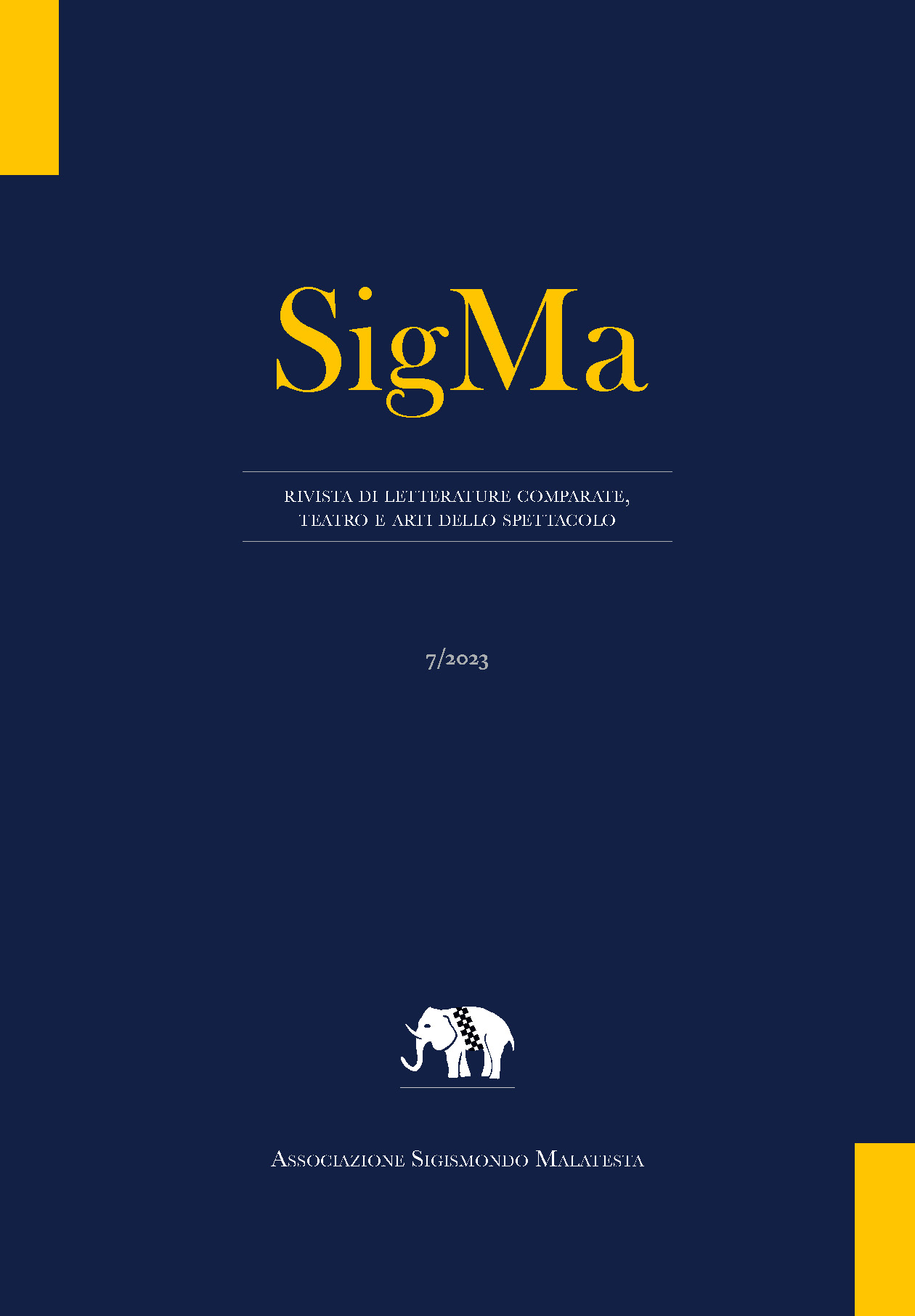“Le regard du fils et la vision de l’Étranger” : Allers-retours entre Paris et la Martinique, de Césaire à Glissant
Abstract
Les allers et les retours entre les Antilles francophones et la France que j’évoquerai sont à la fois humains et textuels. Les mots ont voyagé d’un continent à l’autre, accompagnés de leurs auteurs, ou les accompagnant dans des voyages (parfois physiques, parfois imaginaires) qui ont donné naissance à certaines des œuvres les plus significatives de la littérature caribéenne.
Dans cet article, je parlerai de deux textes de référence de cette littérature, Cahier d’un retour au pays natal d’Aimé Césaire et Soleil de la conscience d’Édouard Glissant, qui traitent précisément de ces allers et retours, entre la France et la Martinique, qui sont avant tout le symbole des allers et retours entre des lieux non seulement physiques mais aussi de l’esprit, entre l’ici et l’ailleurs, le soi et l’autre.
Ces deux textes sont directement issus de la rencontre avec Paris de ces deux auteurs et penseurs martiniquais, et de leur vision de Paris et de la Martinique après cette rencontre. Mais il y a un autre mouvement que j’essaierai de souligner, celui de la « fluidité textuelle », c’est-à-dire le voyage de ces mêmes textes entre les langues et entre les époques, à travers leurs traductions et leurs réécritures, car dans cette double migration, la dimension textuelle et la dimension humaine se confondent, se brouillent et s’informent l’une l’autre.
Downloads
SigMa pubblica in internet, ad accesso aperto, con licenza:
|
|
CCPL Creative Commons Attribuzione |
L'autore conserva il copyright sul suo contributo, consentendo tuttavia a chiunque "di riprodurre, distribuire, comunicare al pubblico, esporre in pubblico, rappresentare, eseguire e recitare l'opera", purché siano correttamente citati l'autore e il titolo della rivista. L’autore, al momento della proposta di pubblicazione, è inoltre tenuto a dichiarare che il contenuto e l’organizzazione dell’opera è originale e non compromette in alcun modo i diritti di terzi, né gli obblighi connessi alla salvaguardia di diritti morali ed economici di altri autori o di altri aventi diritto, sia per testi, immagini, foto, tabelle, sia per altre parti di cui il contributo può essere composto. L’autore dichiara altresì di essere a conoscenza delle sanzioni previste dal codice penale e dalle leggi speciali per l’ipotesi di falsità in atti ed uso di atti falsi, e che pertanto Reti Medievali è esente da qualsiasi responsabilità di qualsivoglia natura, civile, amministrativa o penale, e sarà dall'autore tenuta indenne da qualsiasi richiesta o rivendicazione da parte di terzi.

